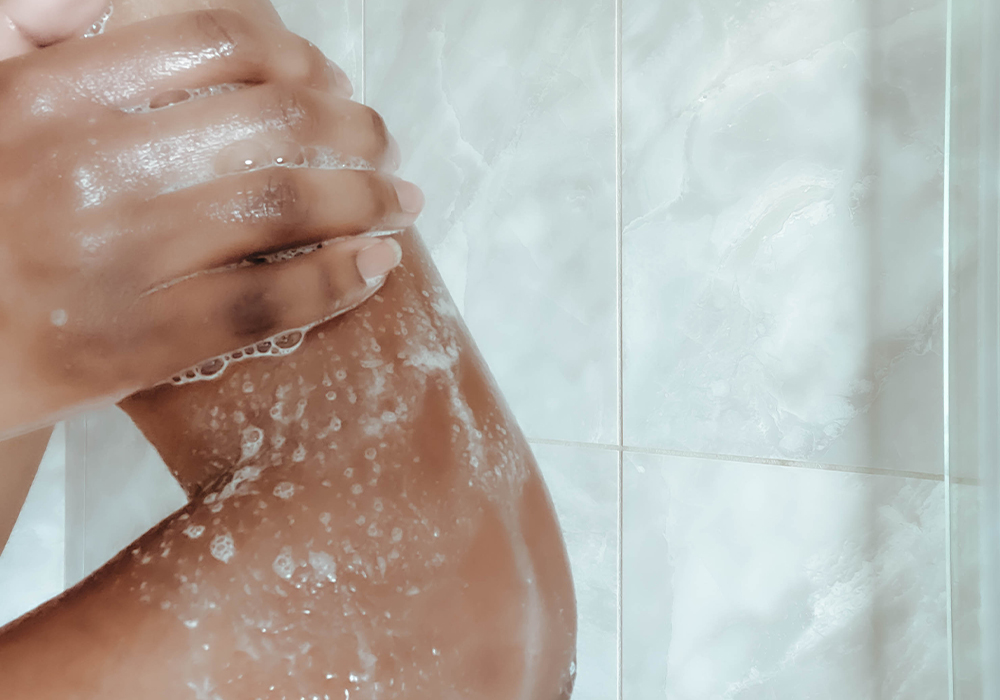
Water is what we cleanse our face, wash our hair and scrub our bodies with. The thought that it could contribute to damage is concerning. Because the skin barrier protects us, it’s “constantly exposed to inorganic ions and metals in water, personal care products, etc. that are widespread in the environment,” says Davie, FL dermatologist Marianna Blyumin-Karasik, MD. While she notes that some metals are harmless, others can disrupt skin homeostasis.
“High concentrations of heavy metals such as lead, calcium, copper, zinc and iron can be detrimental to our health overall. Variable regional tap waters are scrutinized to ensure safety margins. However, tap water that passes can still affect the well-being of our skin and hair,” says Dr. Blyumin-Karasik. Different skin types have a variety of responses to these metals. They can alter the skin surface chemistry and oil composition. Metals can also interact with different cleansers and soaps on our skin, she explains.
Dr. Blyumin-Karasik points out that metal can find its way into our water through inefficient filtering, rusted pipes, mining, natural deposit alterations and plumbing erosions. If you have recently moved or traveled and notice skin reactions, you may be experiencing sensitivity to hard water.
How to prevent skin damage from metals in water
If you think your skin is reacting to metal in your water, the best thing to do is to use filtered water, says Miami dermatologist Dr. Deborah Longwill. You can purchase a shower head, same with your bathroom sink, that filters hard water. Dr. Blyumin-Karasik also suggests incorporating more hydrating cleansers, upping the use of moisturizers and washing your face more rapidly.
Additionally, Dr. Blyumin-Karasik advises strengthening the skin to lessen its vulnerability to heavy metals through the use of anti-pollution skin care. “These reinforce the skin barrier, moisturize, reduce inflammation, re-balance the skin through the assistance of skin adaptogens, detox the skin via chelating metal-binding agents and fight the damaging free radicals with the powerful antioxidants.” She recommends Dr. Barbara Sturm Anti-Pollution Drops ($60), Avène A-OXitive Serum Antioxidant Defense ($46) and Paula’s Choice Resist Super Antioxidant Serum ($43). See if you’re experiencing any of these side effects on your skin from metal in your water and take action.
Find a Doctor
Find a NewBeauty “Top Beauty Doctor” Near you






